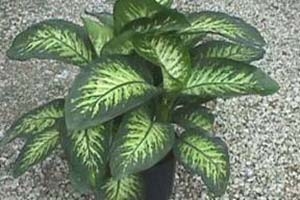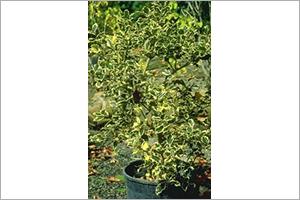Keep Your Pet’s Safe From Poisonous Plants
Many homes have a variety of indoor plants. Not only are they beautiful, but they also increase oxygen levels, decrease dry skin and remove toxins from the air. During the holidays and other occasions, plants like holly, mistletoe and poinsettias are festive and add a splash to holiday decor.
But did you know that these indoor plants as well as an assortment of others could make your cat sick?
Before bringing new indoor plants into your home, it is important to learn which plants could potentially be harmful to your pets.
In the spirit of pet safety and the best interest of our loved fur-babies (cats and dogs), we have provided the 6 commonly purchased indoor plants that are poisonous to pets and we recommend that you avoid having them indoors.
National Indoor Plant – Week Sept. 15th – 19th
Holly
Common names of the holly plant are English Holly, European Holly, Oregon Holly, Inkberry, Winterberry and American Holly. The Scientific name for Holly is Ilex opaca and it comes from the Aquifoliaceae plant family. Holly plants are toxic to cats, dogs and horses because of the “saponins” found in the plant roots.
Clinical Signs of Illness may include: Vomiting, diarrhea and depression. Leaves and berries found on the Holly plant are low in toxicity.
Mistletoe
American Mistletoe is a staple in the holiday season. To kiss a loved one “under the mistletoe.” Tis the season to keep your pets safe. The “American Mistletoe” plant is toxic to dogs and cats as well as horses. What makes this plant toxic are the Toxalbumin, pharatoxin, viscumin present in the seeds. The Scientific names for Mistletoe are Phoradendron & Flavescens. This plant comes from the Viscaceae family.
Signs of Illness from Mistletoe poisoning may include: Cardiovascular collapse, dyspnea, bradycardia, erratic behavior, gastrointestinal disorders, vomiting, diarrhea and rarely-low blood pressure.

Poinsettias
A very common house plant that grows well indoors or outside is the beautiful poinsettias. This plant’s leaves carry Irritant Sap which is deemed poisonous to cats, dogs and if injested even children are susceptible to illness. The Scientific name for Poinsettias is Euphorbia pulcherrima. This plant comes from the Euphorbiaceae family.
Clinical Signs of Illness may include: Irritation to the mouth, vomiting and upset stomach.
 Cyclamen
Cyclamen
Also referred to as Sowbread has pretty flower pedals in a pink and red shade. This plant is deemed toxic to both cats and dogs. Its Scientific name is Cyclamen spp. This plant is in the Primulaceae family. Toxic principles of the plant are the terpenoid saponins found in its roots.
Clinical Symptoms of Illness include: Salivation, vomiting and diarrhea. Systemic fatal abnormalities may include heart rhythm off-beat, seizures and possibly death.
Dieffenbachia
Comes from the plant family Araceae. This plant is toxic to dogs and cats. What makes it a toxic plant for pets is Insoluable calcium oxalates and proteolytic enzymes. Common names for the Dieffenbachia plant include: Charming Dieffenbachia, Giant Dumb Cane, Tropic Snow, Dumbcane, Exotica, Spotted Dumb Cane and/or Exotica Perfection. The Scientific name is Dieffenbachia.
Clinical Signs and Symptoms may include: Oral irritation, intense burning and irritation of the mouth, tongue, lips. Signs may also include: excessive drooling, vomiting and difficulty swallowing.
 Philodendron
Philodendron
Comes from the plant family Araceae. This plant is toxic to dogs and cats. What makes it toxic is Calcium oxalate crystals. The Scientific names for Philodendron is Philodendron spp.
Clinical Signs of Symptoms include: Oral irritation, intense burning and irritation of the mouth, tongue, lips. Signs may also include: excessive drooling, vomiting and difficulty swallowing.
If you suspect your dog or cat is ill from eating a toxic plant, contact your veterinarian immediately. You can also call the Pet Poison Hotline at www.petpoisonhelpline.com or call 800-213-6680 for more information. To learn more about toxic and non-toxic plants for dogs and cats, the American Society for the Prevention and Cruelty of Animals (ASPCA) has a comprehensive list.
For more information regarding all indoor/outdoor plants that may be harmful to your pets click here.






